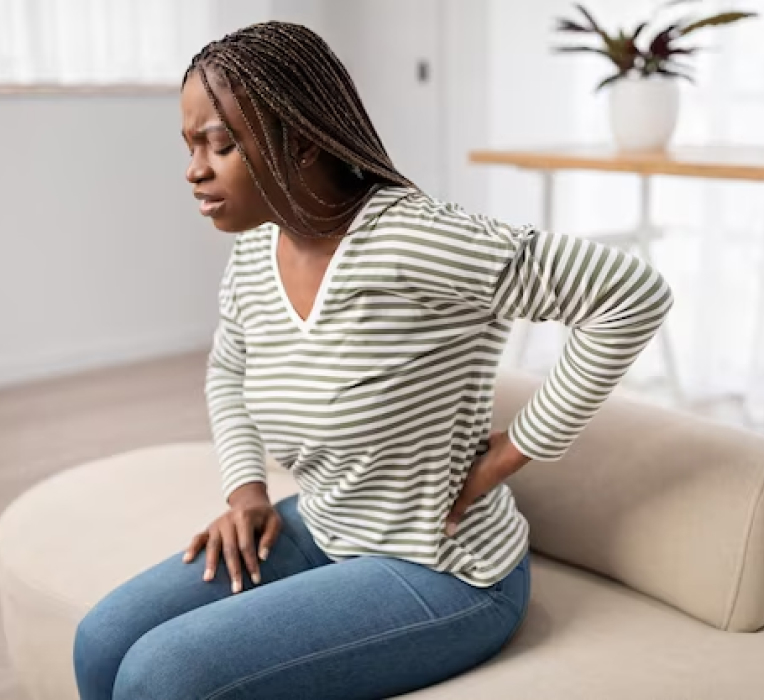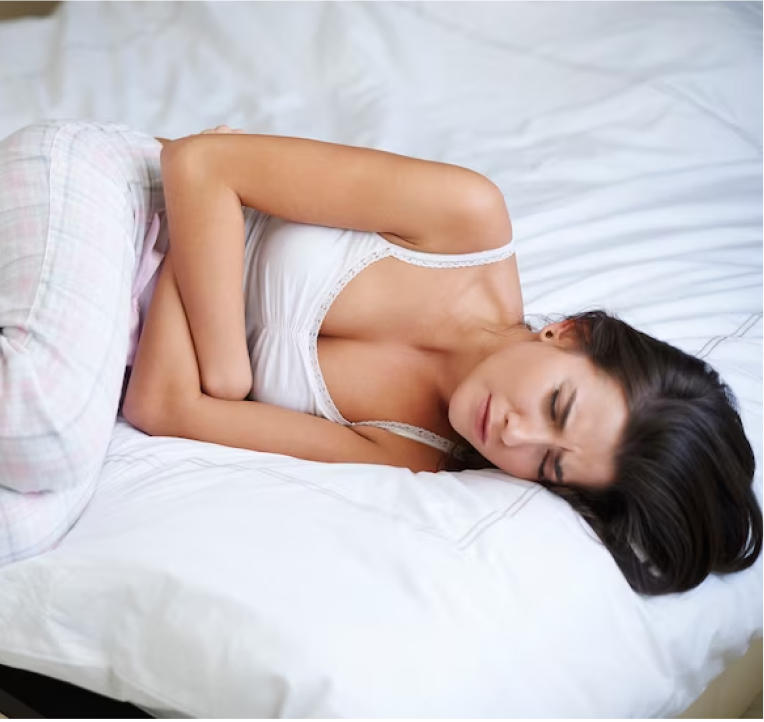Menstruation Care & Management
Many women have a love/hate relationship when it comes to their menstrual cycle. Menstruation is just one component of a necessary, natural change in the female reproductive system.

Menstruation
Clients in New York

Periods
Feel Younger
More info
Menstruation Challenges
Dr. Tsyba treats women with menstruation symptoms that include:
- Heavy periods (menorrhagia)
- Irregular periods (metrorrhagia)
- Abdominal or pelvic cramps (dysmenorrhea)
- Breast tenderness
- Lower back pain
- Bloating
- Irritability
- Uncontrollable crying
- Headaches
- Inability to concentrate
- Joint or muscle pain
While symptoms such as those above might be expected with menstruation, they can also indicate other health issues requiring medical attention. For example, cramps, which occur due to uterine contractions, may also signal the presence of an infection, uterine fibroids, or endometriosis.
cosmetic procedures
Menstruation Conditions & Treatments
Menstruation-related conditions treated at Great City Medical include:
Premenstrual syndrome (PMS) refers to the collection of symptoms you may experience in the week or so prior to getting your period such as bloating, moodiness, food cravings, and breast tenderness. It is believed to occur when estrogen and progesterone levels drop after ovulation in nonpregnant women. PMS stops when you no longer have a period.
Medications, both over-the-counter and prescription, can help alleviate some PMS symptoms.
Severe PMS symptoms may indicate premenstrual dysphoric disorder (PMDD).
Considered a more serious form of PMS, premenstrual dysphoric disorder symptoms also appear just before you get your period. However, PMDD symptoms are generally more severe and may require medical treatment so you can carry out everyday tasks.
Treatment for PMDD includes medications such as pain relievers, hormone supplements, antidepressants, and diuretics (which help remove excess water and salt from the body). In addition, lifestyle changes involving diet and exercise may be required to bring relief. Alternative therapies such as meditation and yoga may also help.
Endometriosis is a condition that occurs when uterine tissue develops in other places such as the fallopian tubes, ovaries, or even the intestines. This tissue behaves as it would in the uterus (bleeding each month) but may not be able to exit the body due to its displaced location.
The most common symptoms of endometriosis are painful cramps and heavy or irregular periods. It can also cause pain during sexual intercourse, or during bowel movements and urination.
Endometriosis can cause the buildup of scar tissue and, if left untreated, can lead to infertility. Treatment may include hormone therapy, painkillers, as well as surgery to remove the displaced uterine tissue.
Ovarian cysts are fluid-filled sacs (cysts) that develop on or inside an ovary. This is fairly common, with most women developing at least one ovarian cyst at some point in their lives. In most cases, a cyst produces no symptoms and causes no pain.
Occasionally a cyst may cause symptoms such as abdominal pain, bloating, and breast tenderness. A large cyst may twist or move an ovary, cutting off its blood supply, which is considered a medical emergency. Ruptured cysts may cause internal bleeding and may be life-threatening.
If an ovarian cyst needs to be removed, Dr. Tsyba may recommend starting with conservative treatment methods such as hormone therapy before resorting to surgical removal of the cyst.
Irregular menstrual periods can be one of the first symptoms of polycystic ovarian syndrome, or PCOS. It can also spur development of male characteristics such as excess hair growth, acne, or male-pattern baldness.
PCOS occurs when excess androgen (a male hormone, such as testosterone) is produced by the ovaries. This, in turn, can keep the ovaries from releasing an egg, resulting in skipped or absent periods. PCOS can lead to enlarged ovaries, ovarian cysts, and infertility. Excess insulin levels in the body may be at the root of increased androgen production in women.
Treatment of PCOS tends to focus on addressing symptoms, such as hormone therapy to normalize menstrual periods, and other medications to address individual issues such as insulin resistance, excess hair growth, etc.
When noncancerous growths called fibroids develop in the uterus, they can put pressure on the tissue lining the uterus, resulting in more pain and bleeding during menstruation.
Fibroids are a common gynecological issue, and women with a family history of fibroids are at greater risk of developing these growths.
Most often, no treatment is necessary for uterine fibroids. However, if they are causing severe symptoms, treatment may be recommended. There are several ways to treat fibroids, including medications and various surgical options. Dr. Tsyba will evaluate your condition before recommending the options most appropriate for you.

Relax Wrinkle
Feel Younger
what people say about us